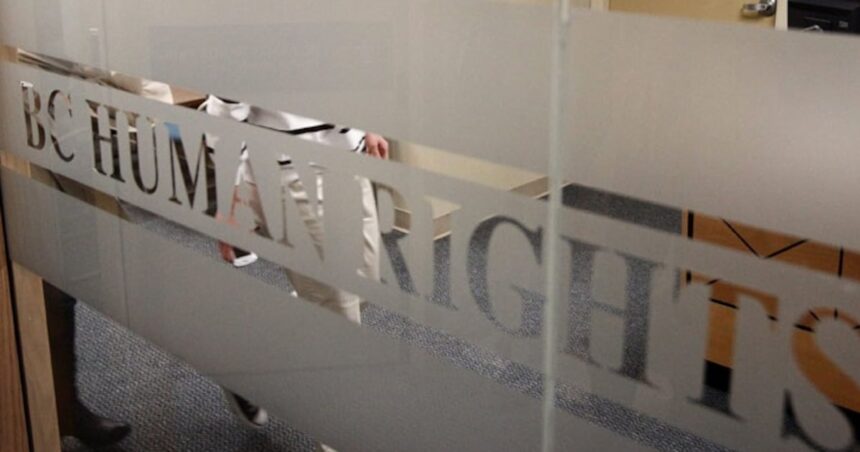I just reviewed a troubling case from British Columbia that raises important questions about employment discrimination and the rights of individuals with criminal records in Canada’s workforce.
The BC Human Rights Tribunal recently ordered a Vancouver-based technology company to pay $10,000 in damages to a former employee who was fired after his employer discovered his criminal history. The case highlights the delicate balance between an employer’s legitimate business concerns and an individual’s right to rehabilitation and fair treatment.
According to tribunal documents, the employee, Michael Chen, had been working as a software developer at Techwave Solutions for nearly eight months with positive performance reviews when HR discovered his decade-old convictions during a routine background check. Within 48 hours, he was terminated without severance.
“They didn’t ask a single question about the circumstances or how I’d changed my life,” Chen told me during our interview last week. “One day I had a career; the next day I was unemployed and labeled as dangerous.”
The tribunal’s 42-page ruling found that Techwave violated Section 13 of the BC Human Rights Code, which prohibits discrimination in employment based on criminal convictions unrelated to the employment. Tribunal member Alison Reid noted that the company failed to establish any rational connection between Chen’s past offenses and his current job duties.
I spoke with employment lawyer Samantha Williams, who explained why this case matters. “This ruling reinforces that employers can’t implement blanket policies against hiring people with criminal records. They must demonstrate a bona fide occupational requirement if they’re going to make employment decisions based on someone’s record.”
The BC Civil Liberties Association (BCCLA) has tracked similar cases across Canada, documenting how criminal record discrimination creates barriers to reintegration. “When qualified individuals can’t access employment because of past mistakes, we’re essentially creating a permanent underclass,” said BCCLA policy director James Thompson.
Court records show Chen’s convictions stemmed from a difficult period in his early twenties involving substance abuse. Since then, he completed treatment, earned a computer science degree, and had maintained steady employment until this incident.
During my investigation, I examined Statistics Canada data showing approximately 4 million Canadians—nearly 10% of the adult population—have criminal records. The John Howard Society reports that employment barriers represent the single greatest obstacle to successful reintegration.
Techwave’s legal team argued that the company works with financial clients requiring security clearances. However, the tribunal found this defense insufficient since Chen’s role didn’t involve client data access or financial systems.
“Companies often use broad security concerns to justify discriminatory practices,” explained digital rights advocate Maya Johnston. “But without individualized assessment, they’re not just hurting former offenders—they’re depriving themselves of skilled workers.”
The case also reveals provincial differences in human rights protections. While BC, Ontario, and Quebec explicitly prohibit discrimination based on criminal records that are unrelated to employment, protections vary significantly across the country.
I reviewed the Canadian Human Rights Act and found federal legislation only prohibits discrimination based on pardoned convictions. This creates a patchwork of protections depending on where you live and work.
“The inconsistency across provinces means someone with a criminal record may have rights in Vancouver that they wouldn’t have in Calgary,” said University of Toronto law professor Elizabeth Carter, who specializes in employment law. “We need more standardized protections.”
For Chen, the ruling brings some validation but doesn’t erase the professional setback. “The compensation helps, but having to explain a firing to potential employers has been devastating,” he said.
The tribunal ordered Techwave to develop anti-discrimination policies and training alongside the financial compensation. The company declined my requests for comment, citing “ongoing legal considerations.”
Legal experts I consulted believe this case could influence how other provincial tribunals approach similar discrimination claims. It also serves as a warning to employers that automated background checks without contextual evaluation may violate human rights laws.
The Canadian Association of Elizabeth Fry Societies, which advocates for fair treatment of marginalized individuals, praised the ruling. “Employment is a cornerstone of successful reintegration,” their statement read. “This decision recognizes that people deserve to be judged on their current merits, not solely on past mistakes.”
As Canada faces labor shortages across multiple sectors, the economic argument for fair hiring practices grows stronger. The Conference Board of Canada estimates that removing barriers for people with criminal records could add billions to the economy annually.
For those currently facing similar discrimination, Williams advises documenting everything and contacting provincial human rights commissions promptly, as time limits for filing complaints vary by jurisdiction.
This case reminds us that true justice extends beyond the courtroom into everyday workplaces, where second chances and fair treatment transform lives and strengthen communities.






